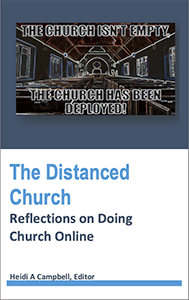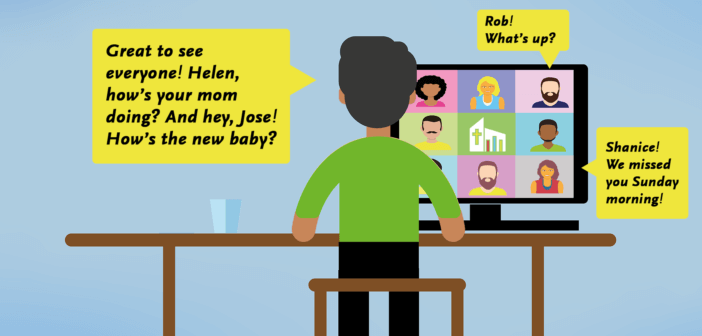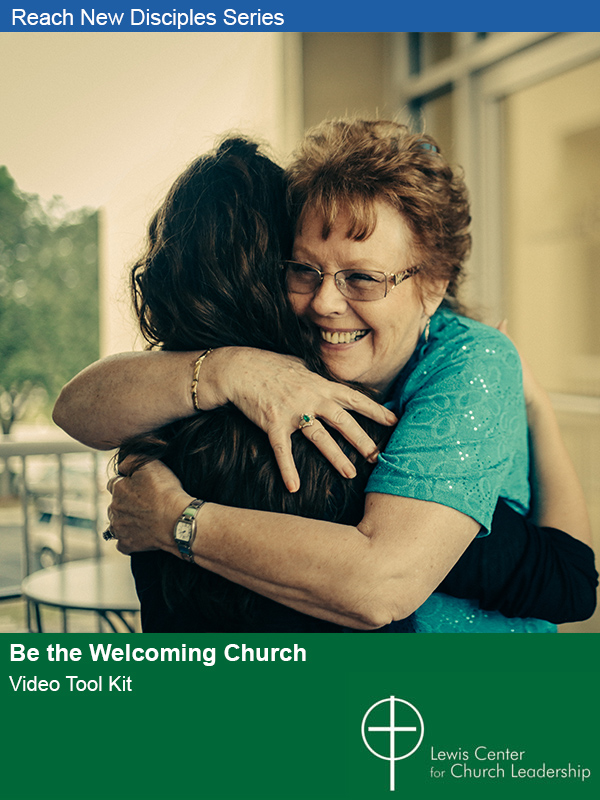Zach Lambert of Restore Austin Church says that the move to digital gatherings reveals that content is important, but our connections are imperative. He believes online ministry must intentionally create spaces where deep friendship can blossom.
Restore Austin Church has been livestreaming our Sunday gatherings since the debut of Facebook Live in April of 2016, just two months after our church launched. For a church that meets in a middle school, we were doing it pretty well. But still, the engagement during the actual livestream was minimal — usually only one or two comments by the same one or two people. That all changed when the coronavirus hit. We transformed our office into a studio and began livestreaming exclusively weekly.
Virtual Hugs
The first Sunday, we had over 200 comments during the livestream. The second Sunday, over 400 comments. The majority of those 600 comments had nothing to do with music, the message, the announcements, or any other content coming through the screen. People were talking to each other; they were greeting each other by name and checking on each other. “Hi fam.” “Buenos días!” “Sending virtual hugs to you.” “How’s that sweet little boy doing?” “Can’t wait to hang out with you again when this is all over!!!” They were even typing in greetings from their kids to other kids whose parents were on the chat. I was stunned.
Rediscovering Relationship
This posture carried forward into the weekly interaction on our social media platforms and into our small groups, too. We moved all our small groups to Zoom so that we could still have good conversation and see each other’s faces at the same time. There were varied predictions from our staff as to the level of engagement that we would see, so when we had our first group leader gathering we were anxious to hear how the first few weeks of digital groups had gone.
We learned that every single one of our groups reported higher attendance and increased engagement than was happening before COVID-19. More than half of the groups reported that not a single group member had been absent in the three weeks since moving to Zoom. I was stunned again. We have also seen new people jumping into groups during this time. In my group alone, we have had five new adults join in the last three weeks. Rather than hurting our small groups, social distancing seems to be revitalizing them.
Acquaintances Exposed
These trends can be rightly attributed to many different factors: cleared schedules, boredom, etc. But I believe it is something more profound than that. I believe, in the age of social distancing, folks are becoming more aware of their need for deep friendship. In the United States, where I live, we are constantly surrounded by people we know. Whether it’s at our jobs, church, the gym, our kids’ soccer practice, or a myriad of other places, many of us are in perpetual dialogue with people.
But if we look deeper, we begin to realize that the dialogue is mostly small talk and the people are mostly acquaintances. For many of us, the constant bombardment of small talk with acquaintances placates our intrinsic, God-given need for deep friendship. We have many acquaintances, so there seems to be no need for friends. We spend hours in small talk, so there seems to be no need for deep connection and conversation. But then came COVID-19. In a matter of days, most of the country went from days filled with small talk with acquaintances to social distancing and isolation.
The figurative masks we used to wear have been replaced by literal masks separating us from our surface-level relationships. The shallow connections which previously pacified us have now been exposed for what they really were all along: counterfeit. And now, in our current cultural moment, this truth is in our faces more clearly than ever before: We need each other. We need deep friendships.
Connection over Content
As almost every church in America makes the move to digital gatherings, we must do so with that truth in mind. Our content is important, but our connection is imperative. We must intentionally create spaces where deep friendship can blossom. The internet is a big place and I am far from the best teacher on it. I believe our worship through music is amazing, but it isn’t unique. This is true for all of us. No matter how great we are, there will always be someone who has better and more compelling content than we do. But there is one thing each of us can offer that no one else can: connection with our unique church family.
The need for deep friendship isn’t any greater than it’s ever been, but most people’s lack of it has been exposed like never before. Right now, the church is uniquely positioned to step into that gap digitally and then carry the torch forward long after social distancing is behind us.
 This material is excerpted from “Facilitating Deep Friendship Digitally When Analog Acquaintances are Gone,” by Zach Lambert in the free ebook The Distanced Church: Reflections on Doing Church Online, Heidi A. Campbell, Editor.
This material is excerpted from “Facilitating Deep Friendship Digitally When Analog Acquaintances are Gone,” by Zach Lambert in the free ebook The Distanced Church: Reflections on Doing Church Online, Heidi A. Campbell, Editor.
RELATED RESOURCES
- 6 Traits People Value in an Online Faith Community by Heidi Campbell
- Leading Ideas Talks Podcast Episode 58: “Rethinking Virtual Community” featuring Heidi Campbell
- Digital Church Is Here to Stay by Carey Nieuwhof







